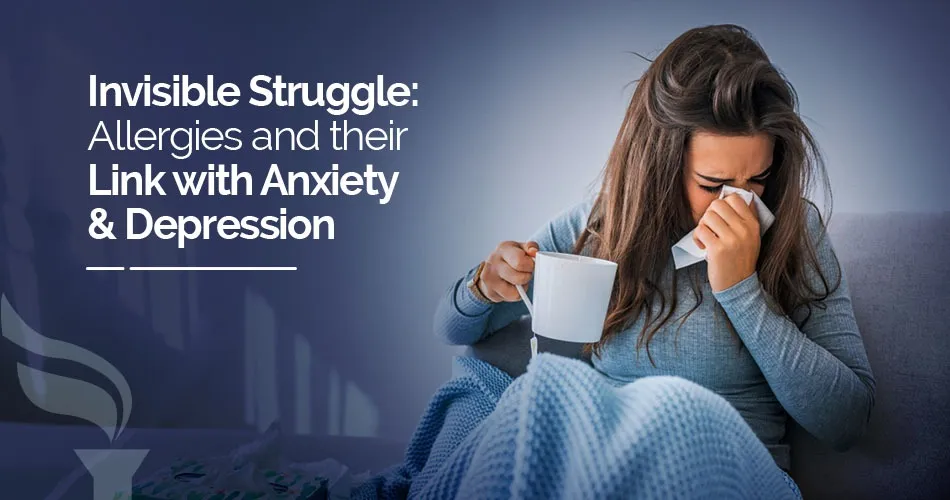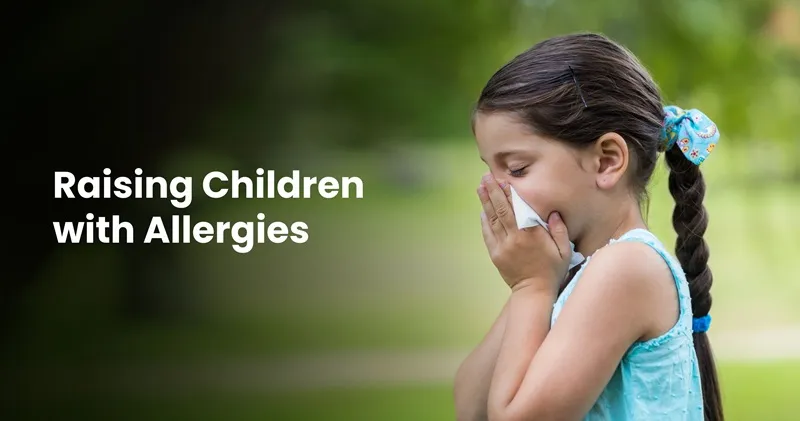Top 5 Ways to Stay Healthy
Jul 12, 2021

There is a saying, “Death is natural; sickness is not.” Getting sick is a reflection of certain things that are going wrong with our body, due to certain incorrect choices and callousness with regards to our health.
Washing your hands properly – Hand hygiene is the first line of defence against several types of infectious diseases. It is surprising that most of us have a careless approach towards washing hands. The improper hand-washing technique is as good as not washing your hands, at all. Make sure you lather the back of your hands, the area between your fingers and even beneath your nails. The Centers for Disease Control and Prevention recommends scrubbing for 20 seconds for hand hygiene. Be informed that alcohol-based hand sanitizers cannot get rid of all types of germs and they are ineffective against pesticides and heavy chemicals.

Eating the right diet – Reduce the incidence of sugar and salt from your diet. You do not have to eliminate them altogether. Aim for a balanced diet with a healthy tilt towards nutritious and fibre-rich foods. Make sure that you increase your intake of green vegetables and fresh, seasonal fruits. The right food choices can make you feel active instead of sluggish or bloating. Foods like garlic, oats, apples, nuts, tea, berries, oysters, broccoli and almonds are known as immunity boosting foods, capable of keeping diseases at bay.
Exercises – Even exercising for at least half an hour for five days a week is good for warding off sickness. Ideally, the right time to exercise is early in the morning. So you should aim to get up early and workout for 30 minutes to 1 hour. Exercising can be hugely productive; it can benefit you in many ways. Apart from making you feel desirable, powerful, energetic and improving your self-esteem, it can also boost your immunity. Choose the kind of workout regime that you like and stick to it.
Surround yourself with positive people – The company you keep also determines the kind of outlook you have in life. If you are in a circle which breeds negativity, then you are bound to feel low, frustrated and miserable. The psychological state has a huge bearing on one’s physiological condition. So surround yourself with people who have a positive outlook on life, have a sense of humor and indulge in healthy competition. Also, read the material or watch content that is uplifting and inspirational. Do not take things personally and participate in activities that minimize stress.
Diagnostic tests – Even if you may look healthy outwardly, there may be things wrong with you on the inside. You should take advantage of diagnostic services and go for a complete blood test and other laboratory tests at least once a year. Go for a diabetic screening, have diagnostics tests done to gauge the functioning of your liver, kidneys, thyroid and cholesterol levels. When you do a complete health check, you can have the peace of mind that you are in good health. Even if certain abnormal things are deducted in the course of tests, they can be rectified and treated upon. Once you are in your 40s, it is recommended to do PSA (Prostate Specific Antigen) Test, if you are a male.
Instead of being reactive, let’s be proactive and get diagnostic tests done. One does not even have to go a pathology center, you can avail the service by going for the option of ‘home sample collection, too.
Contact your nearest Apollo Diagnostics centre or call 9205478479 for more information on various laboratory tests to be done, as per your age and medical condition.
call 9205478479 for more information on various laboratory tests to be done, as per your age and medical condition.

- Black Fungus & COVID: Things you need to know.
Black fungus is a severe invasive fungal infection caused by RHIZOPUS typically seen in immunocompromised individuals. There has been an increased incidence of this fungal infection in patients suffering from COVID 19 disease. Several factors including underlying diabetes, immunosuppressives, host factors, pancreatic endocrine dysfunction by COVID 19 have been proposed as the putative causative mechanisms for Mucormycosis. However, the judicious use of steroids and/or other immunosuppressants should not be withheld in patients with severe COVID 19, as they can be life-saving.
Why Covid patients are getting black fungus?
In Covid-19 patients, their airway mucosa and blood vessels are damaged and serum iron is increased which results in a favourable environment for the black fungus to grow. Steroids are given to covid-19 patients which increases the sugar levels and the long term ventilation reduces the immunity of the patients. These all factors create a favourable environment for the fungus to grow and infect the patient.
How does black fungus start?
One may catch mucormycosis when the fungus enters the skin through a cut, burn or any other types of skin problems. The black fungus sticks to a body part and travels inwards through the nose, sinus or lungs.
If the fungus goes through the sinus, it can affect the eyes and the brain which can lead to a fatal situation.
Can black fungus spread?
The excessive use of steroids and antibiotics and the contamination through the pipes and prongs used for the mechanical supply of oxygen to patients are the main reason for rising in black fungus. Mucormycosis is not contagious which means it does not spread from one person to another. The fungal infection can also occur if clean masks are not worn and the rooms are not ventilated properly.
How to Prevent Mucormycosis Infection?
It is important to stay alert. If diagnosed early it can be treated better with improved outcomes.
Taking care of diabetes and having well-controlled sugars are the most important factor to prevent the invasion. Staying in touch with your endocrinologist and the ID physician post-COVID is also critical.
Contact your nearest Apollo Diagnostics centre or call 9205478479 for more information on various laboratory tests to be done, as per your age and medical condition.
- Can humidity affect your allergy?
Humidity is the amount of water vapour in the air. Too much or too little humidity can contribute to asthma, allergies, skin conditions, infections, and general discomfort.
An allergy is the response of the body's resistance system to ordinarily harmless substances, such as pollen, foods, dust. Whilst in most people these substances (allergens) cause no problem, in allergic persons their resistance system detects them as a threat and produces an inappropriate reaction. Some people can enjoy walking through a meadow of flowers, while some can’t stand a single rose or some people could finish a bag of nuts while some can barely make it through a single peanut.
Allergies come in many forms, some are seasonal, some throughout the year while some last a lifetime. Symptoms of medicine or drug allergy are minor reactions such as rash, itching, redness, pain, stinging, hives, swelling of lips, tongue or throat, sneezing, runny nose or a serious allergic reaction called anaphylaxis which is indicated by symptoms such as wheezing, shortness of breath, throat and mouth swelling, nausea, vomiting, diarrhoea, cramping abdominal pain, fall in blood pressure or even fainting. Some common allergy causing substances are:
Drugs - Nearly any drug can cause an allergy but ones most likely to cause allergies are antibiotics, Aspirin, Insulin, monoclonal antibody therapy, muscle relaxers, non-steroidal anti-inflammatory, sulfa, chemotherapy, HIV, anti-seizure drugs.
Foods - Common foods causing allergies are milk, eggs, peanuts, tree nuts, soy, wheat, and fish.
Insects - Allergies are commonly caused by stinging insects such as bees, wasps, hornets, yellow-jackets, fire ants; biting insects such as kissing bugs, bedbugs, fleas, flies or household pests such as cockroaches and dust mites.
Latex - Contact with everyday products made from natural rubber such as balloons, rubber bands, condoms and diaphragms, rubber household gloves, rubber balls, bandages could cause skin allergies
Mould - Spores of fungi such as mould or mildew also cause allergic reactions
Pets - Allergies to pets with fur such as cats or dogs is common
Pollen - Pollen allergy or hay fever is one of the most seasonal allergies caused by pollens released by trees weeds and grasses.
Allergy issues are widespread and nearly everyone we know would be allergic to a certain substance. If you suspect that you or your loved ones are continuously suffering from an allergic reaction, it is best to approach a clinic offering diagnostic services to rule out serious reactions. An allergy is typically diagnosed in three steps:
Personal and medical history - Detailed medical and personal history will be noted by the doctor to assess the symptoms and their possible causes. Prepare by keeping track of medicines you take, family history and general lifestyle at home, office or school.
Physical examination - Based on the history, if the doctor suspects you have an allergy he will closely examine your eyes, ears, nose, throat, skin and chest. To determine how well your lungs are functioning the doctor may also conduct a pulmonary function diagnostic test or even prescribe an x-ray for the lungs.
Laboratory tests to identify your allergens - For further diagnosis, your doctor may have to do a skin, patch or blood test such as skin prick test, intradermal skin test, specific IgE blood tests, physician-supervised challenge tests. While a laboratory test result is not conclusive of an allergy, it is a rather useful tool in allergy diagnosis.
It is very important to curb allergies at a nascent stage else they could aggravate to serious conditions. If you have the slightest suspicion that you may be suffering from an allergic reaction, consult a specialized diagnostic service like Apollo Diagnostics centre at the earliest.
Related Blog Post
Blog Categories
- Child Health
- Mens Health
- Women's Health
- Mental Health
- Health Myths & Facts
- Fitness
- Nutrition/Recipes
- Remedies
- Weight Management
- Stress Management
- Health Supplements
- Addiction Management
- Disease Management
- Allergy
- Anemia
- Arthritis
- Asthma
- Autoimmune Diseases
- Blood Pressure
- Cancer
- Deficiencies
- Dengue/Malaria/Chikungunya
- Diabetes
- Eye Problems
- Heart Diseases
- Hepatitis
- HIV/AIDS/STD
- Hormonal Imbalance
- Infection/Flu/Viral
- Kidney
- Liver
- Menstrual Problems
- Pregnancy
- Skin & Hair Problems
- Stomach Ailments
- Thyroid
- Others
- Health Checkups
- Diagnostics/Pathology
- Lifestyle & Wellness
- Covid
- Medical Tests
- Cholesterol
- Health Tips
- Parent Care/Old Age
- Lungs
- Food Intolerance








